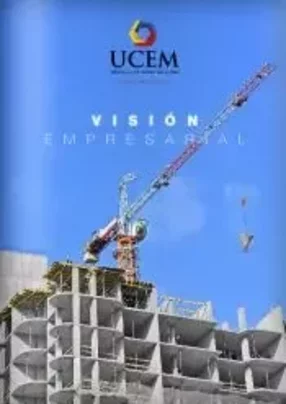Translation Rafael Tablado
Produced by Jassen Pintado
In our interview with Noemi Pozo, CEO for Union Cementera Nacional UCEM C.E.M., she disclosed her short-term projections, the consolidation strategy for the merger and their operations’ expansion into other markets in Latin America. Here’s the Q&A...
BRAL: Tell us about yourself as a professional, and your time in the cement industry?
NP: I’m an engineer in Business Administration, specializing in fiscal matters. I’ve been working in this industry for 23 years, most of the time within the financial area.
BRAL: What achievement are you the most proud of from your time running UCEM C.E.M.?
NP: I’m most proud of is leading two production plants, which previously had been competitors. Now they support each other with technology, resources, and a committed staff working for the same purpose.
BRAL: What traits have made the company a leader in Ecuador’s construction sector?
NP: The automation at the plants has definitely become one of our main innovations. Quality control systems also allow us to guarantee every product to consumers, and it also helps in holding permanent research programs to develop production alternatives for continuous improvement.
BRAL: What projects are developing at UCEM in the 2014-2015 year?
NP: Our main goals for 2014 have been the merger’s consolidation, detection of both production plants’ strengths and weaknesses, and the development of a plan meant to make the most of actual resources. Since both plants increased their production capacity, we must improve sales during 2014 and 2015 by growing our clientele.
BRAL: What are your current plans to take the brand into other markets in Latin America?
NP: We are currently broadening our reach by exporting our products into Colombia. In 2013 there were 10,942 tons exported; in 2014 we have already exported 35,788 tons. This shows our steady growth pace in this market.
BRAL: Has the company made any progress toward becoming more environmentally friendly?
NP: We have designed a Social Responsibility Business Plan, in which we will support different projects to improve life conditions in the communities where our plants are located. We are also taking vegetables bred in our nursery to the inner country to reforest mining zones, cliffs, and other areas where reforesting is necessary.
BRAL: What are the company’s projections for the next five years?
NP: We are working on the integration among both plants to achieve collaboration between them on a larger scale. We hope to keep growing and improving continuously to become strong competitors within the domestic market and facing the privately held companies.
Related articles:


